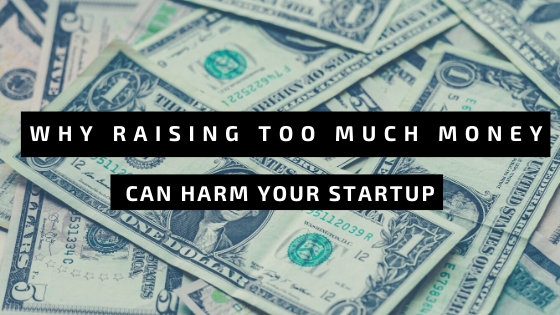People are scared of failure, and entrepreneurs are not an exception. It is a normal feeling, that sometimes blocks us from trying. But what we need to remember is that failures and mistakes are natural if you are moving forward and trying new things. However, it is better if you still follow the most popular cases of other startups and do your best to avoid the typical mistakes made by them.
We have created a list of 26 most common startups for you to be aware of. This list is not exhaustive, so feel free to add more ideas and cases in comments!
1. Theoreticising
One of the popular misleading factor for the beginning startups can be the tremendous amount of business literature, especially about startup creation. After reading a few dozens of such books future entrepreneur might think that he got a huge upgrade and is ready for a challenge to grow his super business just by drawing a strategy copied from a famous unicorn. The thing is that very often the same strategy does not work twice. At least it does not have the same effect, because there are too many side factors, the circumstances are never the same. What would be the recommendation? Well, you can continue reading books, but without trying, without testing hypotheses, without making your hands dirty in routine daily startup work, just by theorising, you won’t get far.
2. Dividing shares with other co-founder(s) too early
In the very beginning of your startup journey, the founders are motivated, you see the great future ahead and lots of income to come. In this positive mood, you are ready to share, as you believe that the profits of the project will be enough to satisfy all the needs of “participants”/contributors.
In such a positive mood, you do not foresee lots of issues that might come up.
After a while, you see that not everyone is as motivated as in the beginning, some people work less than others, or invest less resources. At the moments, when the team of founders starts burning out, some might quit, taking their shares with them (unless the opposite is written in the contract). If you really get to the point, where the startup starts getting profit (well, we all know that around 85% of startups fail - so, not so many stay floating) - then there might be some tensions to make the fair division, as in the beginning equal distribution seemed to be fair. It might not be the same in practice… The recommendation here is not to rush with an equal equity share from the start. Try to work with people for a while - after that you will be able to take a more reasonable decision.
Further on this mistake: Life video with Katerina Voronova about equity share between founders
3. Starting business with the best friend
One specification: with the best friend you have never worked with. That is not always a mistake, but might be risky. You should learn how to separate personal and business communication. The responsibilities should be taken, deadlines met and tasks completed. No excuses. There is another recommendation - do not discuss financial topics when you are drunk, neither with friend, nor with potential partners or clients.
4. Copying a foreign company without adapting it to the local mentality
Just taking and implementing idea from another country’s startup might be tempting. However, do not disregard cultural differences and be ready that the very same solution can be so successful in one region and not at all desired in another. Think and analyse before implementing!
5. Hiring expensive employees on the early stage
Ambitious founders see their great and strong team, they want to be surrounded by the best experts in technology, marketing, sales, etc. Such professionals might “cost” a startup a fortune. And many entrepreneurs thinking strategically are ready to invest in those great brains. But be aware that as soon as you run out of money, as soon as your startup faces financial problems - these people will quit, being not interested to work without “fair” remuneration for their expertise and professionalism. What is worse is that if it is a technical person, they can sometimes leave the product in an unfinished state, when it is tricky for a new person to intervene, then sometimes it is easier to restart.
Thus, on the early stage you should pay a lot of attention to loyalty - growing and learning together with people in your team. At some point, when scaling your business you will be able to involve more “expensive” specialists, distributing the roles and the tasks depending on the abilities and interests of the employees.
6. Lacking strategic vision
Lots of daily tasks that fall on the heads of co-founders might mislead them and make them forget about strategy and long-term development. Try to leave some time on strategic planning on the daily basis, even if it is not much. You must know about “the art of small steps” - every day make a small step in your strategic direction and you will get there, do not let routine distract you and forget about more important things.
7. Not doing proper marketing
Many founders believe that their product is so cool, that people can’t help but use it. When investors ask such startups about their distribution strategy, they say “Social Media” and “word of mouth” without giving any details. They think that after a few posts on facebook, their product will be booming! The reality would be harsh for those entrepreneurs. If you do not have a step-by-step plan, and if you postpone your promotional activities - at some point it will be too late and not that efficient.
If you do not know where to start, you can always address to InnMind team and we will lead you, show you the direction to develop - the first consultation is absolutely free!
You can also watch the webinar about Product launch with Dr. Donatas Jonikas.
8.Forgetting about the priorities
Speaking globally, the main priority for a commercial startup is to generate profit. You read it correctly, generate profit - not raise investment! Running after business angels or venture capitalists, lots of founders get so distracted that they forget about clients, they forget that the main source of the money for the growth of their business is their clients. The boom of investing activities and events is encouraging this mindset of seeing investment as a final goal for any startup.
Well, some startups do need initial investment to launch their product, but recommendation would be to communicate with target audience first and understand their priorities.
9. Participating in numerous events instead of working on a startup
This mistake is connected with the previous one - you forget about your main focus, and start going to all the possible events for startups and participate in all competitions. While it is important to get some visibility for your project, do not waste that much time and do not try to cover all of them. Remember that your goal is to build a profitable business, not just to have a winner of XX awards.
10. Not listening to feedback from users
Dialogue will help you to understand the pains of your users, where exactly you can help more. Every time you launch something new, get some response and feedback from the clients. You might get new ideas on how to improve your product/service, understand what they lack and how to become better than competitors.
11. Weak market expertise
Many startups fail to do a good market research. They have many excuses why they did so: no time, lack of competences, poor understanding on how to make a marketing research, no money to hire professional experts. But they forget about one important thing: if you don’t have a good market research - this means you don’t have a good knowledge of your market opportunities and threats, competitors and substitutes of your product, customer needs and behaviour, market value and demand. For the investors this means that you’re not prepared enough to bring your product to the market and make real business. Don’t give up: if you have problems doing market research yourself - request support from the experienced experts who will help you with it.
12. Lack of motivation
When someone calls himself a startup founder - it doesn't necessary mean that he is passionate and motivated about his project. Being “a Startup” is trendy and unfortunately covered with many myths and stereotypes, so many entrepreneurs really believe that investors distribute their funds to right and left whenever someone asks them. They launch several projects in parallel just to see which one of them will be more attractive for investors. Or they start fundraising and ask investors to finance their project without investing enough time, resources and money themselves. Most of the investors we talked to say that this is the most unattractive type of startup attitude: “How can you ask someone to put his money in your risky venture, if you didn’t invest in it yourself?” - one of VCs told us. Don’t be lazy or greedy, first accumulate all available resources and try everything you can to push your startup up, and only after that go to investor to ask him for money.
13. Not being consistent in marketing efforts
Many startup entrepreneurs dream that few months (or even weeks!) of intensive marketing efforts can create a miracle and drive their business to the next level. I should disappoint you: it’s a mistake. A very widely seen and too often made mistake of entrepreneurs of all stages and fields. Doing startup marketing is a marathon, not a sprint. As it is already written above, it should start on an early stage, even while working on your prototype and business idea. It can be focused on free solutions (like SMM and Digital marketing) or traditional marketing strategies, but the most important is to continue making consistent marketing efforts and experiments during all the lifetime of your business. Otherwise it won’t work!
You can watch the webinar about Marketing in startups to learn more about marketing
14. Wrong business model
One of the most common reasons of a startup failure is the strategic mistake in business modeling and business planning. Many startup founders are too optimistic about how easy it will be to acquire customers, involve sales and distribution channels, etc. They don’t pay much attention to the real conditions and competition on the market, thinking, that after public launch of their product customers, partners and brand advocates will knock their door immediately without any efforts. They don’t even consider that after getting first customers (which is already a challenge itself), it is often becomes more expensive to attract and win customers, and in many cases the cost of acquiring the customer (CAC) is actually higher than the lifetime value of that customer (LTV).
15. Simply bad product
One of other widely seen mistakes startups make and the reason of their failure is developing a product that doesn’t meet market need. In many cases the first version of the new product or even other product releases won’t meet the market need due to general execution problems or more strategic problems, like not reaching Product/Market fit because of poor customer development. In some cases it may be solved with small improvements coming after analysing customer feedback, but in the worst case scenario it may be necessary to make a complete change in product features, design and positioning, a Pivot which may require heavy budget and lots of time. That is why it is so important to make your customer development and market research before and during the development of the MVP (referring to the mistake 11 cited above).
16. Not following up
Having any discussion and not following it up, whether it is your team, potential partner, client or an investor. That should be your habit - always have a follow up, in the form of a letter, or a note in your Project Management Tool. That will help you not to forget important things and being able to get back to the results of the discussion easily.
By the way, here are some of the tools that will definitely help your work in a startup.
►Further 10 startup mistakes are noted by the founder of Y Combinator, Paul Graham, in his blog:◄
17. Single Founder
Working without team or friends is unreal. And investors of course understand this. Just think, they were also founders of different startups. So, if you are a single founder, it will raise suspicion. It probably means the founder couldn't talk any of his friends into starting the company with him. That's pretty alarming, because his friends are the ones who know him best.
So, this way you can get “No”.
18. Marginal Niche
Some startups choose a small, obscure niche in the hope of avoiding competition. You choose safe (as you think) way to reach success. Paul Graham considered that shrinking from big problems is mostly unconscious. “It's not that people think of grand ideas but decide to pursue smaller ones because they seem safer. Your unconscious won't even let you think of grand ideas. So, the solution may be to think about ideas without involving yourself. What would be a great idea for someone else to do as a startup?”, he said.
So, don’t be afraid of challenges or high competition. If you do the same better you will get success.
19. Derivative Idea
Many of the applications are imitations of some existing company. That's one source of ideas, but not the best.
Ask yourself, your friends, other people what they need, what problems they have. It seems like the best problems to solve are ones that affect you personally. Apple happened because Steve Wozniak wanted a computer, Google because Larry and Sergey couldn't find stuff online, Hotmail because Sabeer Bhatia and Jack Smith couldn't exchange email at work.
Instead of starting from companies and working back to the problems they solved, look for problems and imagine the company that might solve them.
20. Obstinacy
Obstinacy helps us to reach some goals. But don’t get too attached to your original plan. Most successful startups end up doing something different than what they originally intended—often so different that it doesn't even seem like the same company. You have to be prepared to see the better idea when it arrives. And the hardest part of that is often discarding your old idea.
The best way is to validate your idea first. Here are 9 ways how you can do it.

21. Slowness in Launching
Paul Graham says startups make all kinds of excuses for delaying their launch. And it is their mistake. One of reasons why you should launch in the beginning is that it's only sharing your idea with users when you fully understand it.
Launching the product will help you to validate your idea and make some changes to make it better for users.
22. Launching Too Early
Why is it a problem? Because if you offer your clients product which doesn’t solve the main problem of clients, your reputation will be damaged. So what's the minimum you need to launch? Paul Graham gives an example in the programming: “Think about the overall goal, then start by writing the smallest subset of it that does anything useful. If it's a subset, you'll have to write it anyway, so in the worst case you won't be wasting your time. But more likely you'll find that implementing a working subset is both good for morale and helps you see more clearly what the rest should do.”
Newly launched product do not have to do everything, it just has to do something useful.
23. Having No Specific User in Mind
We noticed that the most successful startups solved their own problems. So, we (and Paul Graham) advice you create product, which will solve problem which you also face. If you're trying to solve problems you don't understand, you're hosed.
If you're going to make something for teenagers or "business" users or some other group that doesn't include you, you have to be able to talk some specific ones into using what you're making. If you can't, you're on the wrong track.
24. Raising Too Much Money
It's obvious how too little money could kill you, but is there such a thing as having too much?
Let’s think. You have more money than you need. And this money is not yours. This money is investors’ and they want their money work. So, you'll move into proper office space and hire more people. That will change the atmosphere, and not always for the better. Now most of your people will be employees rather than founders. They won't be as committed; they'll need to be told what to do; they'll start to engage in office politics.
Another drawback of large investments is the time they take. The time required to raise money grows with the amount. When the amount rises into the millions, investors get very cautious.
Other reasons why you should be careful with much money read here.

25. Not Wanting to Get Your Hands Dirty
Nearly all programmers would rather spend their time writing code and have someone else handle the messy business of extracting money from it. And many founders don’t want to do it. But people don’t pay money because you are just smart.
In such cases startups don’t promote their product and only work to make it better. To be successful it is not enough to create a product you should sell it.
26. A Half-Hearted Effort
When you are starting your business, the idea is that you put as much effort into it as possible to make it launch quickly. If, at the same time, you have your daily job, you simply cannot be so focused on your project, it is just a side work for you (in many cases, not in all). Having a main job does not mean that you will fail, but it increases your risks. You can have your day job and work for your startup, but your efforts is not full. Most startups fail because they don't try hard enough.
Looking at this list of mistakes, one might think that he is smart enough to avoid them, while the other would say that it is too tricky to be an entrepreneur and would quit. Neither of these thoughts is the goal of this publication - we mostly recommend you keeping your eyes open and looking at the big picture of startup creation. Awareness is one of the keys to success.
Read also:





